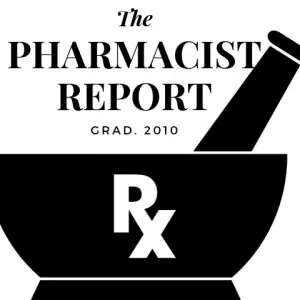As healthcare professionals, pharmacists are essential to providing the best possible care for patients. From dispensing medication to offering advice on medications, they act as a valuable member of any healthcare team. Below we will explore the roles of pharmacists in detail and provide an overview of what it takes to become one and the range of settings they can work in.
To become a pharmacist, you will need to complete a minimum of two years of undergraduate education, followed by four years of pharmacy school. During this time, you will gain comprehensive knowledge about pharmacology, including the safe use of medications and their effects on different parts of the body. In addition to coursework, you may also be required to complete internships in order to get a real-world experience in pharmacy practice.
Pharmacists work in a variety of settings such as pharmacies (both independent and corporate), hospitals and clinics, long-term care facilities, medical laboratories, drug manufacturers and research centers. Regardless of the setting, pharmacists are entrusted with confidential patient information that must be accurately managed and reported without error at all times.
In terms of job duties and responsibilities, some areas that a pharmacist may specialize or cover include: filling prescriptions; providing patients with accurate instructions on using medications correctly; managing drug inventory; developing patient-specific treatment plans; participating in clinical trials or analyses; researching new drugs or treatments; counseling patients on health matters related to their medication or condition; providing guidance on effective healthcare management; maintaining legal compliance according to DEA regulations; monitoring patient charts for potential problems or adverse reactions caused by medications; preventing drug abuse and misuse through awareness efforts and collaboration with other healthcare professionals.
As evidenced above, being a pharmacist is not just “reading up” on medicine – it encompasses much more than that! By taking part in educational programs along with continuing professional development activities such as attending conferences or completing online courses, pharmacists can stay informed about the latest developments in their field which helps them provide even better care for their patients. Pharmacists have an impressive amount of knowledge and skillset which enables them to offer optimal patient support — no matter where they might work!

-
Pharmacist Career:
A career in pharmacy can provide individuals with an exciting, rewarding opportunity to make a difference in people’s lives. To become a pharmacist, individuals must complete an accredited degree program in pharmacy and pass a licensing exam.
Accredited degree programs usually include both classroom-style instruction and experiential learning, such as internships and simulations. Common courses cover topics like pharmacology, medication management, drug interactions, and clinical pharmacology (the study of how drugs work in the body and how they can be used to treat various diseases).
In addition to the academic requirements for licensure, potential pharmacists must have excellent interpersonal skills and be able to provide compassionate care when interacting with patients. Other qualities that are beneficial include teamwork abilities, organizational skills, an attention to detail, excellent math skills and problem-solving abilities. With these capabilities combined with sufficient training and experience, pharmacists can become immensely impactful healthcare professionals who help improve people’s quality of life each day.
-
Pharmaceutical Science:
The field of pharmaceutical science involves the study of the development, manufacturing, and use of drugs for the treatment of medical illnesses and conditions. It is an integral area of expertise for pharmacists who must be well-versed in the properties and mechanisms of action associated with various medications. In addition to their daily duties, pharmacists may also have opportunities to assist with research projects and development activities related to new medicines. This involves working with pharmaceutical companies and researchers to ensure that new treatments are delivered safely and effectively to those who need them.
By understanding how drugs work on a chemical level, pharmacists can play an important role in ensuring quality health care services. Their skill set can range from analyzing drug interactions within a patient’s regimen to evaluating patient responses to therapeutical adjustments. With their expert knowledge, they are able to provide counselors and direct guidance regarding prescription regimens, serving as a crucial resource for both patients and other healthcare providers alike.

-
Clinical Pharmacology:
Clinical pharmacology is the area of study focused on how drugs act in the body, and how to best use them in treating various diseases and conditions. It is a subject of utmost importance for pharmacists, as understanding the different mechanisms of action and possible side effects of medications can optimize their contribution to patient care when dispensing treatment regimens. By studying clinical pharmacology pharmacists can gain an enhanced appreciation of how drugs can be utilized safely and effectively to improve patient outcomes. An important aspect of this field is the potential interactions that may occur between different drugs and within each drug’s metabolism. Pharmacists are uniquely positioned to identify dangerous drug combinations that could result in serious adverse events or further health complications, so it is essential for them to have a comprehensive understanding of clinical pharmacology in order to fulfill their duties responsibly. Ultimately, with greater knowledge gained from studying clinical pharmacology comes enhanced accuracy when prescribing medications, resulting in improved patient safety and better overall health outcomes.
-
Medication Management:
Medication Management is an important responsibility of pharmacists. This entails working in partnership with other healthcare professionals to ensure that patients are receiving the appropriate medications, in the right doses, for optimal therapeutic benefit. This can involve assessing a patient’s medication list to verify accuracy and determine if any potential drug interactions exist, as well as making suggestions for adjustments to their treatment plan as needed. In addition to providing recommendations, pharmacists may also take on additional responsibilities such as preparing and dispensing medications, along with educating and counselling patients on the use of their medications. Moreover, pharmacists are responsible for monitoring patient progress to ensure optimal outcomes from their prescribed therapy.
Through effective medication management practices, pharmacists can play an integral role in helping to improve patient health outcomes. By collaborating with other healthcare professionals and offering guidance on the proper use of medications, they can help patients remain compliant while also helping to ensure safe use of drugs.
-
Palliative Care:
Palliative care is an integral component of end-of-life healthcare, providing relief from the symptoms and stresses of terminal illness. The pharmacist has a critical role in this specialized form of care, working with patients and their families to manage pain and other distressing symptoms associated with the disease. Through personalized attention and collaboration with physicians, pharmacists are in an advantageous position to paliate suffering by helping improve the quality of life for those afflicted with a terminal illness. Therefore, by participating in palliative care initiatives, pharmacists make a significant contribution to overall patient comfort and wellbeing.
-
Pharmacotherapy:
Pharmacotherapy is a form of medical treatment that uses medications to effectively manage disease, relieve symptoms, and improve the overall health of the patient. Pharmacists are an important part of the pharmacotherapy field, working collaboratively with other healthcare providers to select the optimal type and dosage of drugs for each individual patient. Moreover, pharmacists are responsible for consistently monitoring how well these medications are working, adjusting dosages as necessary in order to maximize patient outcomes. The goal of this field is to provide patients with evidence-based treatments that best meet their healthcare needs. With proper medications and appropriate therapies, pharmacotherapy can significantly improve patient quality of life and even save lives.
-
Drug Interactions:
The potential for drug interactions is incredibly important in providing safe and effective healthcare. Pharmacists have received special training to identify and minimize the risk of adverse interactions among a patient’s medication list, potentially preventing serious consequences for that individual. In order to ensure that each patient receives the most appropriate treatment and avoid any negative intersections between medicines, pharmacists undertake detailed reviews of their medications as well as consulting with other health professionals when needed. This attention to detail enables pharmacies to effectively reduce the risks of possible drug interactions among their patients, allowing them to receive quality care and prevent the serious repercussions such reactions can cause. By taking proactive steps through careful assessment, pharmacists are able to maximize safety while providing potent therapy for their patients.

-
Prescription Requirements:
Prescription requirements for pharmacists vary across states and jurisdictions. In many regions, pharmacists are authorized to prescribe certain medications without a physician referral, while other areas may require a physician’s involvement to initiate treatment. Regardless of the state specific requirements, pharmacists have an important responsibility in providing appropriate and safe medication to meet the individual healthcare needs of their patients. Pharmacists must be knowledgeable about the medications they are prescribing and ensure that they are selecting safe and effective treatments with consideration of the patient’s medical history, lifestyle habits and allergies. When prescribing medications, it is essential that pharmacists clarify instructions with legal parameters in mind while educating patients on proper usage and side effects so they can make well-informed decisions regarding their health. Through this process, pharmacy professionals can ensure that their patients receive the most appropriate care available to them.
-
Disease Prevention:
Disease prevention is an integral role pharmacists can play in healthcare. Through educating and counseling patients on risk reducing strategies for chronic conditions, such as heart disease or diabetes, pharmacists can not only help to improve patient outcomes but also reduce the overall burden of disease in the community. Pharmacists may provide individualized advice specific to a patient’s condition and lifestyle, as well as providing information about public health initiatives available in the local area. Additionally, pharmacists may work closely with other healthcare professionals to develop and implement programs aimed at preventing or managing chronic conditions. This could include organizing immunization clinics or screening events (such as blood pressure tests) that make preventive care more accessible and easier for people to understand and adopt new behaviors. By helping to address underlying causes of disease through education and early intervention, pharmacists are able to contribute significantly to public wellbeing.
-
Research and Regulatory Compliance:
As a pharmacist, you may also have the opportunity to work in research and regulatory compliance within the biopharmaceutical industry. In this role, you will be responsible for monitoring the safety and efficacy of medication products throughout their lifecycle. This can involve conducting clinical trials in conjunction with pharmaceutical companies and research organizations, as well as reviewing data and providing recommendations on whether or not a new product should be approved or rejected by regulatory agencies. Through your work, you can help to ensure that only safe and effective medicines reach patients.
Moreover, working in this field gives pharmacists the opportunity to participate in cutting-edge research and development efforts for developing new treatments and improving existing formulations. By playing a part in these processes, you can make meaningful contributions towards advancing healthcare around the world.
Conclusion:
In conclusion, pharmacists play an invaluable role in the healthcare system. They are responsible for filling prescriptions, managing medication regimens, educating patients, and providing guidance about proper use of medications. Pharmacists can work in a range of settings from hospitals to biopharmaceutical companies and everywhere in between. They have the expertise and knowledge to make a significant impact on their patient’s lives by ensuring they are receiving safe and effective medications.
If you are interested in undertaking an important career in healthcare that is both rewarding and challenging, consider becoming a pharmacist. You will have the opportunity to directly contribute to helping people manage their health – as well as enabling them to live better quality lives – while developing your skills and professional experience.

